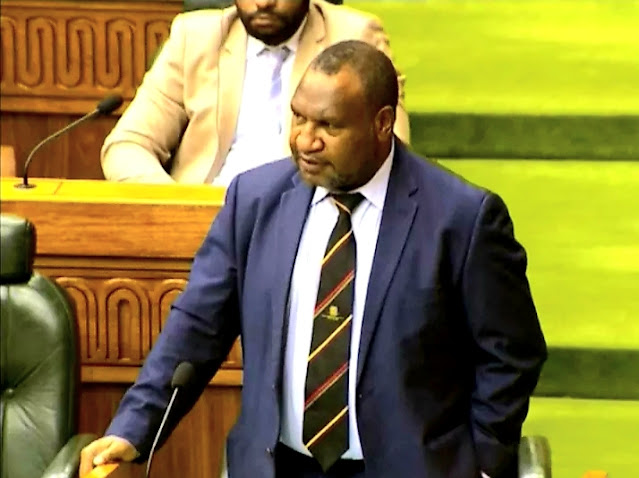James Marape emerged as a key player in the political landscape of Papua New Guinea in 2019 when he successfully orchestrated a Vote of No Confidence against the then Prime Minister Peter O'Neill.
Marape, who had been the finance minister under O'Neill's People's National Congress (PNC) Party for 8 years, cited "trust issues" as the main reason for his resignation from the government. This move set off a chain of events that ultimately led to Marape becoming the Prime Minister of PNG.
Let's take a look at the chronological order of events that unfolded in April and May 2019, as recorded in this article on PNG Insight.
CLICK HERE TO READ THE LATEST ON THE MAY/JUNE PARLIAMENT SITTING.
James Marape's Resignation
In April 2019, James Marape resigned as the finance minister and member of the PNC Party, citing "trust issues" with Prime Minister Peter O'Neill as the main reason for his decision.
Marape, a young leader known for his smooth-talking approach, had the admiration of both young and old MPs in the parliament, which set the stage for a potential change in leadership.
Vote of No Confidence Motion
Following Marape's resignation, a Vote of No Confidence (VoNC) motion was tabled in the parliament on May 7, 2019.
Marape was seen as a driving force behind the motion, which aimed to remove Peter O'Neill as the Prime Minister of PNG.
The motion was supported by a coalition of opposition MPs and some defecting PNC members who cited "trust and confidence" issues in O'Neill's leadership.
Moves to Deter the Vote of Confidence
In the lead-up to the VoNC, there were several moves by the government to deter the successful passing of the motion.
This included attempts to offer big promises and large sums of money to MPs to sway their votes, as well as seeking legal interpretations and delaying tactics to validate the technical aspects of the VoNC.
The Speaker of the parliament, who was perceived to be aligned with the government, also played a role in this strategy.
VoNC Voting Session
The actual VoNC voting session was initially scheduled for 7 days after the tabling of the motion, but was later extended to 21 days by the parliament privilege committee.
Finally, on May 28, 2019, the voting session took place in the parliament.
Marape's strategic moves and the support of opposition MPs and defecting PNC members resulted in a successful passing of the motion, and Peter O'Neill was ousted as the Prime Minister of PNG.
James Marape Becomes Prime Minister
Following the successful passing of the VoNC motion, James Marape was elected as the new Prime Minister of Papua New Guinea.
His strengths as a former finance minister, his support from both young and old MPs, and his reputation as a smooth-talker were key factors that contributed to his rise to power.
Marape's government promised to address issues such as corruption, resource development, and social services, and he pledged to be a leader for all Papua New Guineans under the banner 'Take Back PNG' with the political slogan 'Make PNG the Richest Black Nation'.
Future Vote of No Confidence in PNG
As Papua New Guinea anticipates future votes of no confidence, the events that unfolded in 2019 provide insights into possible strategies and moves that may be employed by MPs and political parties.
This includes attempts to sway votes through promises of money and other incentives, seeking legal interpretations and delaying tactics, and the role of the Speaker in the process.
However, the outcome of a VoNC ultimately depends on the numbers and consensus among MPs, as well as the leadership and strategic skills of the candidates vying for the position of Prime Minister.
PNG Changing Political Landscape
The events that unfolded in the lead-up to the vote of no confidence in Papua New Guinea in 2019 serve as a reminder that politics is a constantly evolving landscape.
For those who are anticipating the next vote of no confidence in PNG's prime minister, the events of 2019 offer several valuable lessons.
- Firstly, the role of money and promises cannot be understated in swaying the opinion of MPs.
- Secondly, legal interpretations and technicalities can be used as delaying tactics, and it is important for both sides to be aware of this possibility.
Conclusion
Ultimately, the outcome of any future vote of no confidence in PNG will depend on a range of factors, including the strength of the opposition's candidate, the loyalty of MPs, and the political manoeuvring that takes place behind the scenes.
Only time will tell who will emerge victorious in the next vote of no confidence, but one thing is for certain - it will be a closely watched and closely contested event.
Watch this brief overview of the past and present PNG prime ministers.




No comments:
Post a Comment